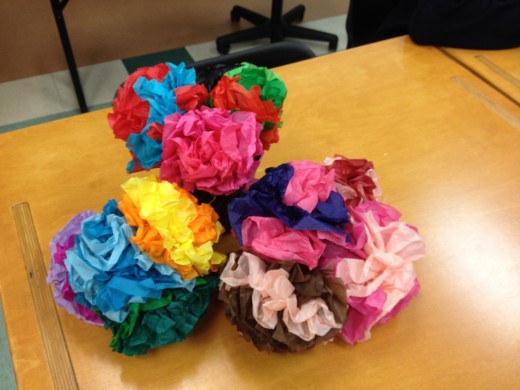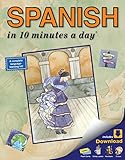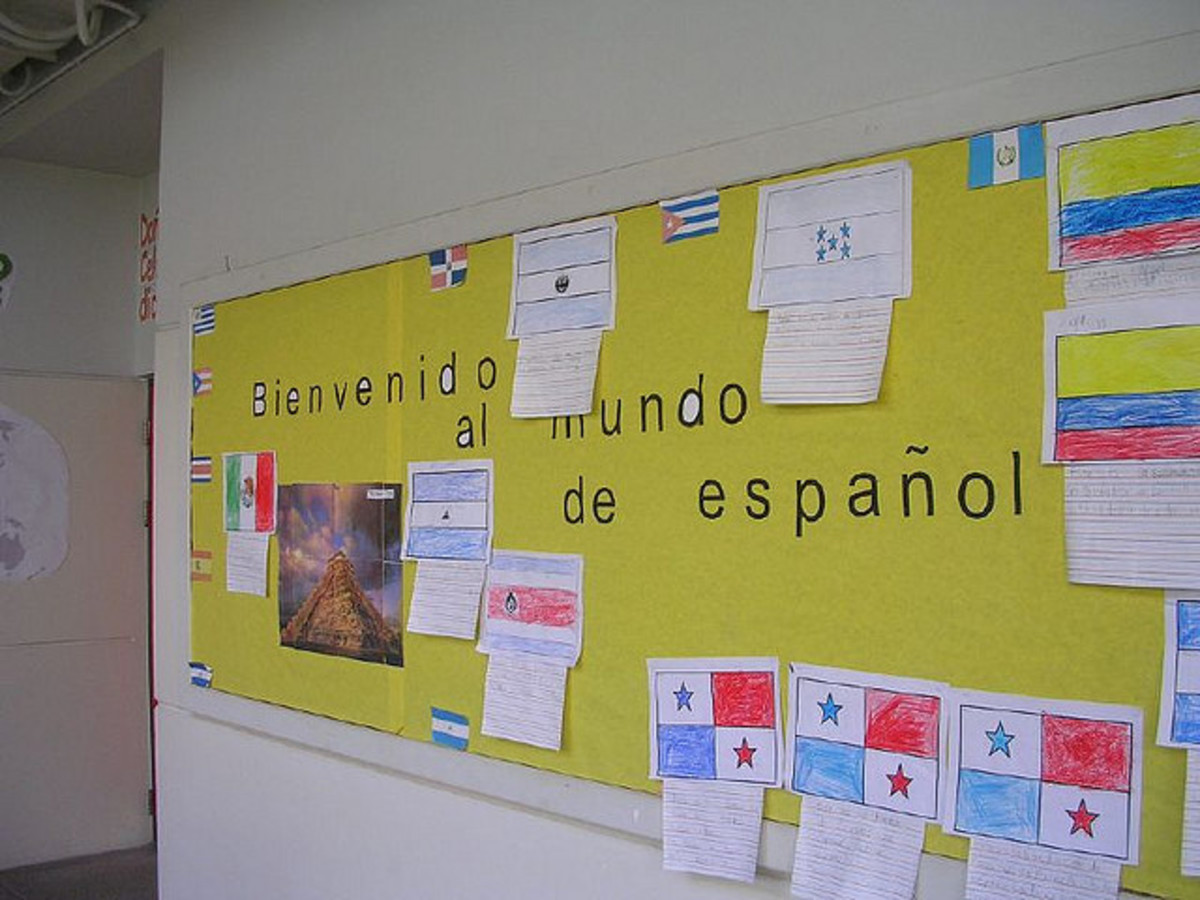Struggling Teenager Becomes Adult Fluent in a Second Language: My Story
How I Became Fluent in Spanish
Growing up in a small city that was not very diverse, foreign language classes were not offered until ninth-grade. Because I had relatives in a Spanish-speaking country, my passion for learning the language began around eighth-grade. I would glance at Spanish phrase books, and teach myself a few words. Then, in ninth-grade, I was excited to enter "Spanish I." To my surprise, I received mostly "D's" on the grammar tests, but mostly "100 percent" on the vocabulary tests. Therefore, my grade for the quarter usually averaged out to a "B." I managed to make it into "Spanish II," for my sophomore year of high school.
During my sophomore year of high school, I had a different Spanish teacher than the one I had during my freshman year. This teacher spoke only Spanish from "Day One" of class. He would rarely speak English, and only did if it was absolutely necessary. Although I may not have understood most of what he was saying at the time, I learned a lot that way. I also received much better exam grades than I had in "Spanish I." I eventually made it into "Spanish III" for my junior year!
I had the same professor in "Spanish III," as I did for "Spanish II." I actually struggled very much in "Spanish III," because the grammar became much more difficult and in-depth, and my attitude conflicted with the teacher's attitude slightly. Despite the difficulty of "Spanish III," our teacher had arranged a special program for "Spanish III," and "Spanish IV" students to go to the local elementary school during their study hall periods, and teach the students Spanish. I enrolled in this program, and that is when I knew I wanted to become a teacher. Despite the difficulty of surviving "Spanish III," I still had my passion for the language, and I did well enough to make it into "Spanish IV!"
After the struggle of "Spanish III," things were starting to come together in "Spanish IV." I was beginning to understand the concepts of the language better, and we were reading a lot in Spanish; even if I did not understand what I was reading, I knew how to pronounce the words. I started to appreciate what I was learning. It was amazing! I received decent grades, and then graduated high school, and headed to college.
Because the university I was attending had given me late notice of the Spanish placement tests, it exempted me from them. The university reviewed my transcripts, and decided that I belonged in "Intermediate Spanish." I, then, began my minor in Spanish. This time, I was not very pleased with my professor. I felt like I was "losing" more Spanish than learning. During my sophomore year, stuck with this same professor, I decided I was not learning enough Spanish. To me, the only way to fix this problem was to complete a study abroad program. At the time, my parents were paying for my education, so I called my mother, and discussed it with her. Of course, I waited until I had already researched the exact program I wanted to enter, and how to apply, before discussing it with my parents. It was a lot of paperwork! I wanted to complete the program in Costa Rica, but my university did not have a program in Costa Rica. Therefore, I had to research universities that did have programs in Costa, so I actually had to apply to another university, and ensure that my current university would accept the credits as transfer credits. In the end, I was accepted at the other university, and into the study abroad program in Costa Rica.
The first night that I arrived to my non-English-speaking host-family's house was the first time I was forced to speak Spanish; it was the only way I could communicate with the family. I was so nervous that I could not even remember one of the most basic Spanish words, "apple." Luckily for me, that was one word in English that my new host-brother knew. From that point forward, I would embark on an adventure of speaking Spanish daily, and taking advanced Spanish classes.
The advanced Spanish classes were held at the local university, and taught by a "Tica," (a non-derogatory word for a Costa-Rican). These Spanish classes were definitely more difficult than my Spanish classes at the U.S. university, as at the U.S. university, I was receiving "A's" in all of my Spanish classes, but in Costa Rica, my grades were more mediocre. Nevertheless, I was speaking Spanish every day, all day. Even though my grades seemed to be only average, I felt like I was learning, and speaking, more Spanish than ever before. I made Costa-Rican friends, and we would help each other by making a rule; I had to speak Spanish to them, and they had to speak English to me. This was quite effective for all of us. By the end of my semester abroad, I had become quite fluent in Spanish.
Upon my return to the university in the U.S., I continued enrolling in Spanish classes. I was even fortunate enough that the university had hired an additional Spanish professor; a much better one than the one I had before at this university. Therefore, I was able to utilize my new-found skills to their fullest potentials; I became the student that all of the other students came to for help with their Spanish homework, and/or to answer their Spanish questions. I felt like I had learned.
It has now been 17 years since I completed this program, and 16 years since I graduated from the university. I am now a teacher, certified in three different areas, including Spanish. Yes, I am now a Spanish teacher. It is unbelievable to me, but this did not happen without much hard work and dedication. I have continued to maintain my fluency by attending Spanish groups and/or classes, practicing with native speakers on the phone, using Skype to call and practice with my Spanish-speaking cousins, and/or emailing my friends and family in Costa Rica. Now, there's even a popular app called "WhatsApp," which makes it easier to call and exchange photos/videos with those in other countries, for free.
I still enjoy Spanish very much, and am amazed that I was able to come as far as to become fluent in the language. When I think back to my experience in Costa Rica, I think to myself in amazement, "How in the world did I become fluent in Spanish? Wow! I would not hav.e been able to talk to any of those people in Costa Rica if I had not known the language." My Spanish had become so good, that I decided to make a copy of my résumé in Spanish, and during one of the first teaching interviews I ever had, they asked me "did you have any help with this résumé." When I told them, "no, I did it on my own," I felt they did not believe me. I did not get that job, but I feel it may have been due to their disbelief, as they did not have a native (or near-native) speaker present to test my abilities. If you work hard, almost anything is possible.
If your child has a passion for a foreign language, but is struggling to succeed in his/her high school classes, assure him/her that it is still possible. I would suggest to advise them to read this article if necessary. I frequently credit my high school Spanish II, III, and IV teacher to the basic knowledge of Spanish that I have, and I credit my knowledge of advanced Spanish concepts to my "Tica" professor, but I credit my entire study abroad experience to the Spanish fluency that I have obtained. If it was possible for me, it is definitely possible for your child, too!












